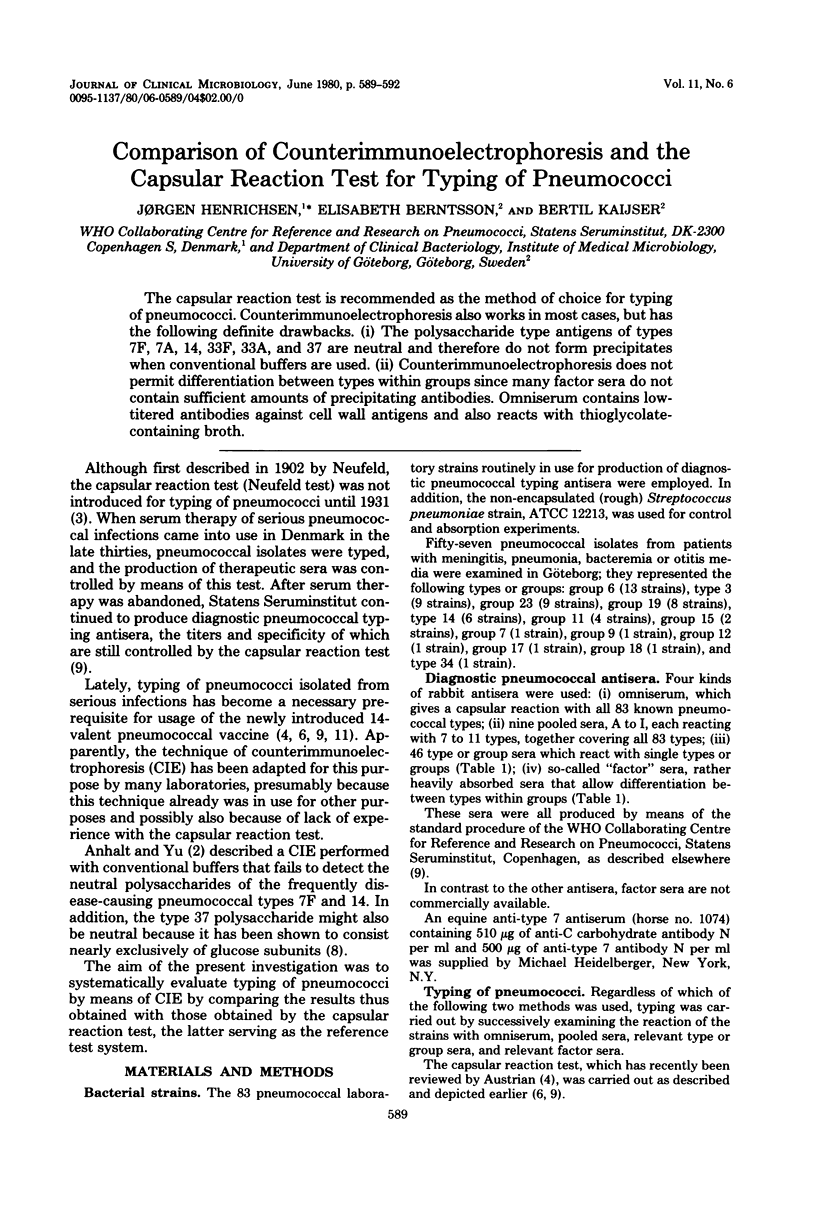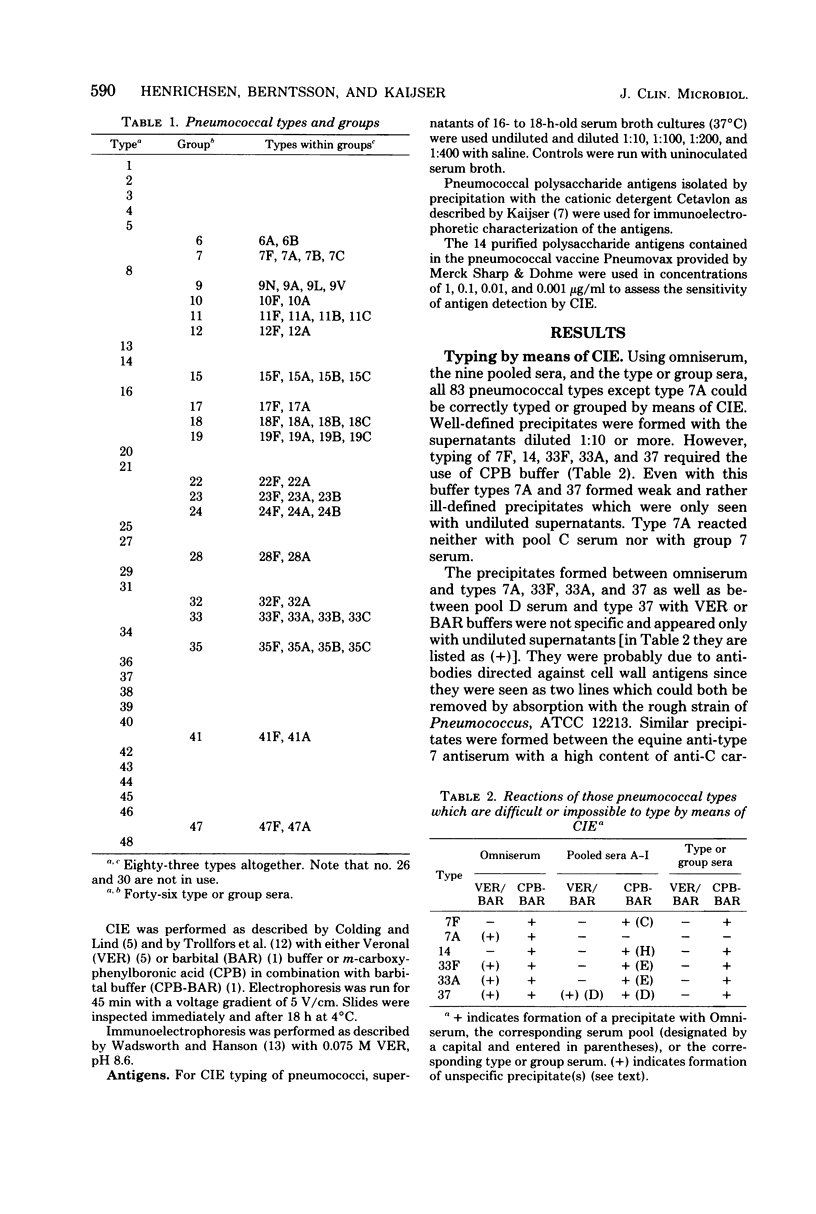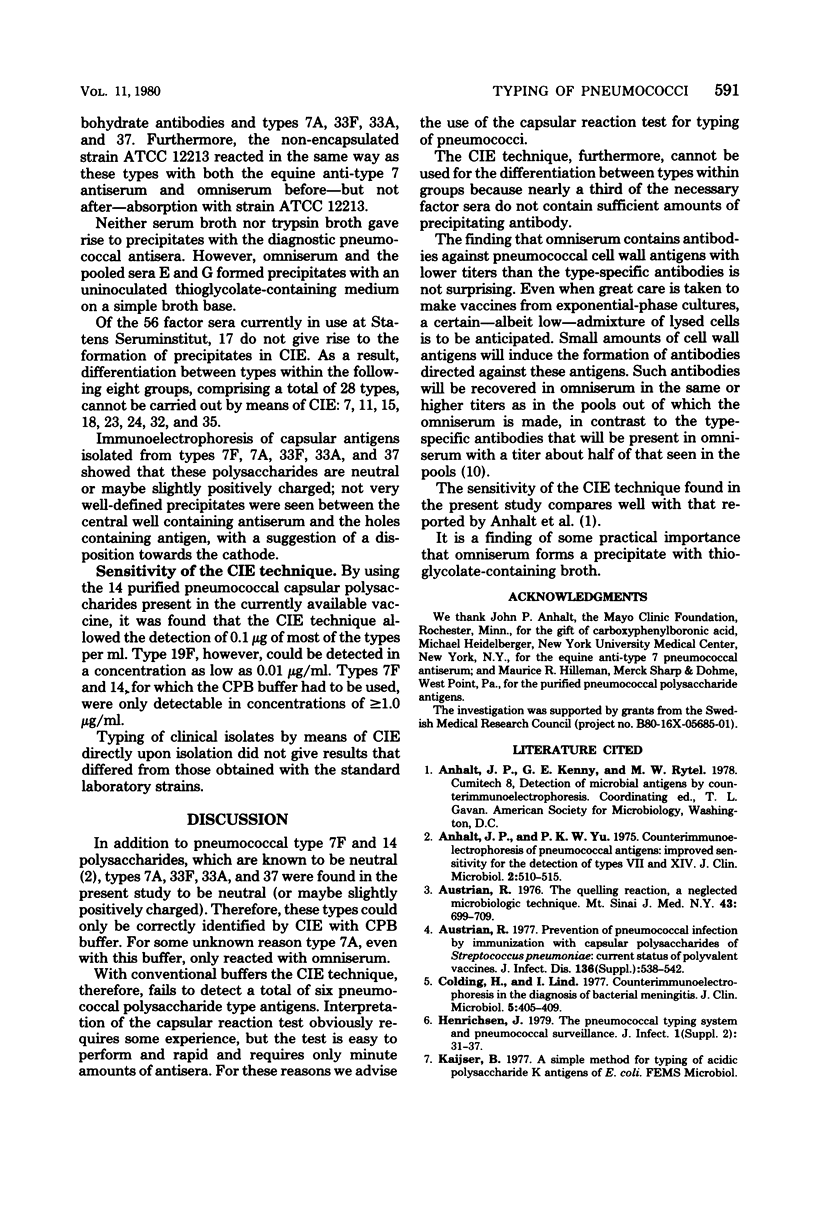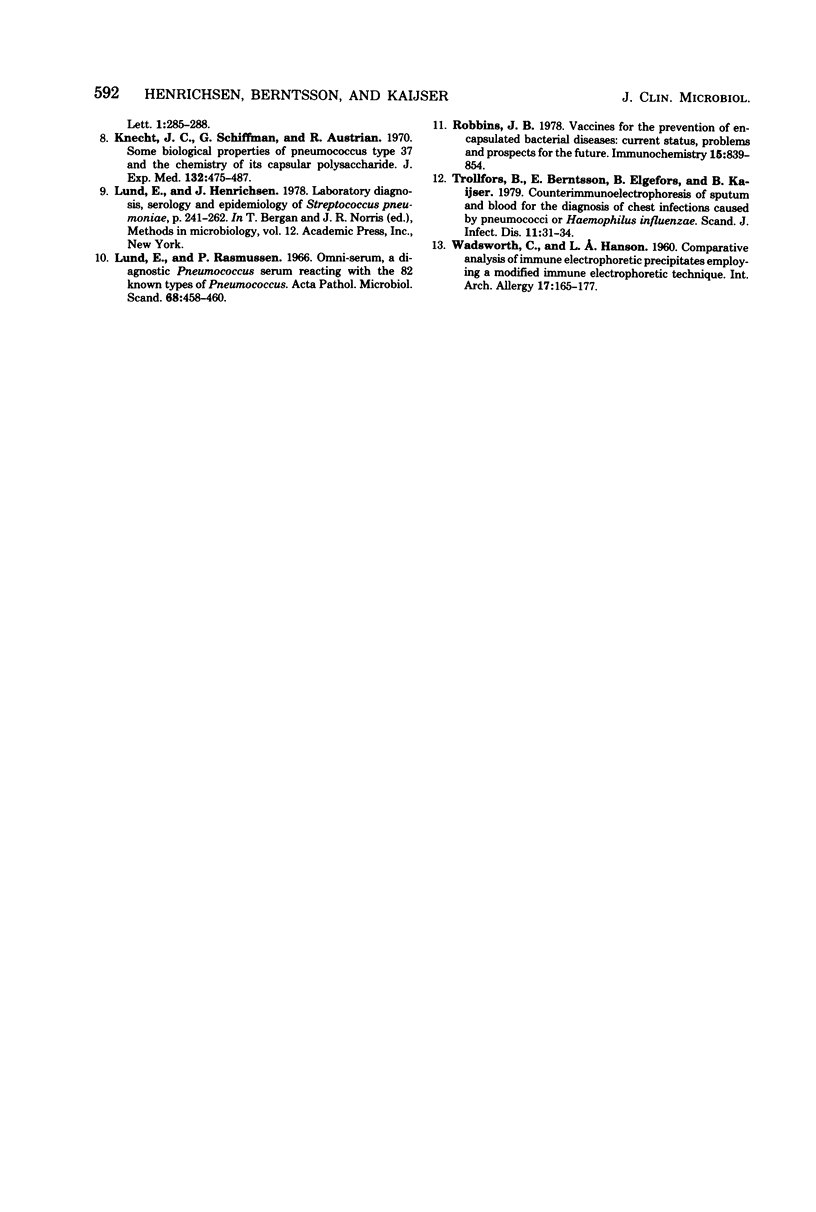Abstract
The capsular reaction test is recommended as the method of choice for typing of pneumococci. Counterimmunoelectrophoresis also works in most cases, but has the following definite drawbacks. (i) The polysaccharide type antigens of types 7F, 7A, 14, 33F, 33A, and 37 are neutral and therefore do not form precipitates when conventional buffers are used. (ii) Counterimmunoelectrophoresis does not permit differentiation between types within groups since many factor sera do not contain sufficient amounts of precipitating antibodies. Omniserum contains low-titered antibodies against cell wall antigens and also reacts with thioglycolate-containing broth.
Full text
PDF



Selected References
These references are in PubMed. This may not be the complete list of references from this article.
- Anhalt J. P., Yu P. K. Counterimmunoelectrophoresis of pneumococcal antigens:improved sensitivity for the detection of types VII and XIV. J Clin Microbiol. 1975 Dec;2(6):510–515. doi: 10.1128/jcm.2.6.510-515.1975. [DOI] [PMC free article] [PubMed] [Google Scholar]
- Austrian R. The quellung reaction, a neglected microbiologic technique. Mt Sinai J Med. 1976 Nov-Dec;43(6):699–709. [PubMed] [Google Scholar]
- Colding H., Lind I. Counterimmunoelectrophoresis in the diagnosis of bacterial meningitis. J Clin Microbiol. 1977 Apr;5(4):405–409. doi: 10.1128/jcm.5.4.405-409.1977. [DOI] [PMC free article] [PubMed] [Google Scholar]
- Knecht J. C., Schiffman G., Austrian R. Some biological properties of Pneumococcus type 37 and the chemistry of its capsular polysaccharide. J Exp Med. 1970 Sep 1;132(3):475–487. doi: 10.1084/jem.132.3.475. [DOI] [PMC free article] [PubMed] [Google Scholar]
- Lund E., Rasmussen P. Omni-serum. A diagnostic Pneumococcus serum, reacting with the 82 known types of Pneumococcus. Acta Pathol Microbiol Scand. 1966;68(3):458–460. doi: 10.1111/apm.1966.68.3.458. [DOI] [PubMed] [Google Scholar]
- Robbins J. B. Vaccines for the prevention of encapsulated bacterial diseases: current status, problems and prospects for the future. Immunochemistry. 1978 Nov;15(10-11):839–854. doi: 10.1016/0161-5890(78)90117-7. [DOI] [PubMed] [Google Scholar]
- Trollfors B., Berntsson E., Elgefors B., Kaijser B. Counterimmunoelectrophoresis of sputum and blood for the diagnosis of chest infections caused by pneumococci or Haemophilus influenzae. Scand J Infect Dis. 1979;11(1):31–34. doi: 10.3109/inf.1979.11.issue-1.04. [DOI] [PubMed] [Google Scholar]
- WADSWORTH C., HANSON L. A. Comparative analysis of immune electrophoretic precipitates employing a modified immune electrophoretic technique. Int Arch Allergy Appl Immunol. 1960;17:165–177. doi: 10.1159/000229122. [DOI] [PubMed] [Google Scholar]


